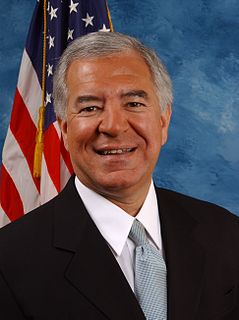A Quote by William Greider
The trauma of 9/11 stimulated infinite possibilities for worry - some quite plausible, but most inspired by remote what-if fantasies. A society bingeing on fear makes itself vulnerable to far more profound forms of destruction than terror attacks. The "terrorism war", like a nostalgic echo of the cold war, is using these popular fears to advance a different agenda - the re-engineering of American life through permanent mobilization.
Quote Topics
Advance
Agenda
American
American Life
Attacks
Cold
Cold War
Destruction
Different
Echo
Engineering
Fantasies
Far
Fear
Fears
Forms
Infinite
Infinite Possibilities
Inspired
Itself
Life
Like
Makes
Mobilization
More
Most
Nostalgic
Permanent
Plausible
Popular
Possibilities
Profound
Quite
Remote
Society
Some
Terror
Terror Attacks
Terrorism
Than
Through
Trauma
Using
Vulnerable
War
Worry
Related Quotes
The intelligence community is so vast that more people have top secret clearance than live in Washington. The U.S. will spend more on the war in Afghanistan this year, adjusting for inflation, than we spent on the Revolutionary War, the War of 1812, the Mexican-American War, the Civil War and the Spanish-American War combined.
I worry that I may have overstated the impact of Civil War on the utopians. By the time the Civil War comes, most of the communities were quite separated from the wider American society. Their rhetoric is still about transforming the world, but they're not having that much traffic with their neighbors.
Particularly when the war power is invoked to do things to the liberties of people, or to their property or economy that only indirectly affect conduct of the war and do not relate to the engagement of the war itself, the constitutional basis should be scrutinized with care. ... I would not be willing to hold that war powers may be indefinitely prolonged merely by keeping legally alive a state of war that had in fact ended. I cannot accept the argument that war powers last as long as the effects and consequences of war for if so they are permanent -- as permanent as the war debts.
"The War on Consciousness" is really all physical manifestations and all those problems are ultimately just a war on your way of thinking. Especially now, when we're involved in the war on terror. Terror is a psychological term. Terrorism is a political term. Terrorist is a sociopolitical term. But terror is a psychological thing.
Worry is different from fear. If fear is like a raging fever, worry is a low-grade temperature. It nags at us, simmers in our souls, hovers in the back of our minds like a faint memory. We may fear certain realities, like death; we worry about vague possibilities. Worry distracts us more than paralyzes us. It is like a leaky faucet we never get around to fixing.


































